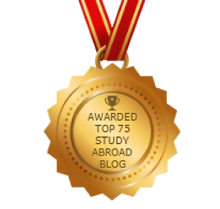Posted on July 25 2020
Canada exempts foreign representatives from travel bar
By , Editor
Updated June 07 2023
Canada’s borders are still closed to travelers from abroad. But there are exemptions that are made for Canada immigration. Now, these include consular officers, foreign diplomats, officials, and their immediate family members.
The exemption is applicable to foreign nationals having passports with
- a consular acceptance,
- a diplomatic acceptance, or
- an official acceptance
from the Chief of Protocol for Global Affairs Canada. The candidate must be:
- a consular officer,
- accredited diplomat,
- official or representative
of a
- foreign country,
- the United Nations, or
- any of its agencies, or
- any international organization
of which Canada has a membership.
Foreign representatives are now permitted to enter Canada in order to resume their postings after getting accredited by Global Affairs Canada. They will need a temporary resident visa (TRV) prior to traveling to Canada with the current restrictions in place.
TRVs must be coded “O-1” or “D-1” to indicate to border officers that the holder of the passport is entitled to consular, diplomatic, or official privileges.
This news came after Canada resumed to process TRVs and eTAs (electronic Travel Authorization) on July 1, 2020.
The current travel restrictions in place in Canada do not apply to:
- skilled workers coming to work in Canada
- students who got approval before March 18, 2020, and are required to study in Canada
- family members who are staying for more than 15 days
The travelers must also show proof to CBSA (Canadian Border Services Agency) that they are traveling to Canada for an essential reason. Only then they will be allowed into Canada.
With regard to immediate family, Canada has broadened the definition to include more members, during the COVID-19 crisis. The old list of members includes:
- dependent children and grandchildren
- common-law partners
- spouses
The additions include:
- a guardian or tutor
- a parent’s or step-parent’s spouse or common-law partner
- parents or step-parents
Self-quarantine is a must for those travelers who enter Canada unless they are:
- people who regularly cross the border for work
- people arriving in Canada within the boundaries of a trans-border community
- people entering Canada on a fishing vessel
- licensed healthcare professionals and students who are permitted to work in a health field, as long as they are not caring for people vulnerable to COVID-19 within a 14-day period
- people arriving in Canada to receive medical services unrelated to COVID-19
- people who deliver medical equipment or provide medical care
- workers in emergency services
- people arriving in Canada in the national interest as determined by the:
- Minister of Public Safety and Emergency Preparedness,
- Minister of Citizenship and Immigration, or
- Minister of Foreign Affairs
- people providing essential services as identified the Chief Public Health Officer
- those serving in Canadian Forces
- people who arrive in Canada to assist the coronavirus response team
- airline crews
Canada’s border still remains closed to foreign travelers until July 31, 2020. The US-Canada border is now closed until August 21, 2020.
If you are looking to Study, Work, Visit, Invest or Migrate to Canada, talk to Y-Axis, the World’s No.1 Immigration & Visa Company.
If you found this blog engaging, you may also like…
Tags:
Canada immigration
Share

